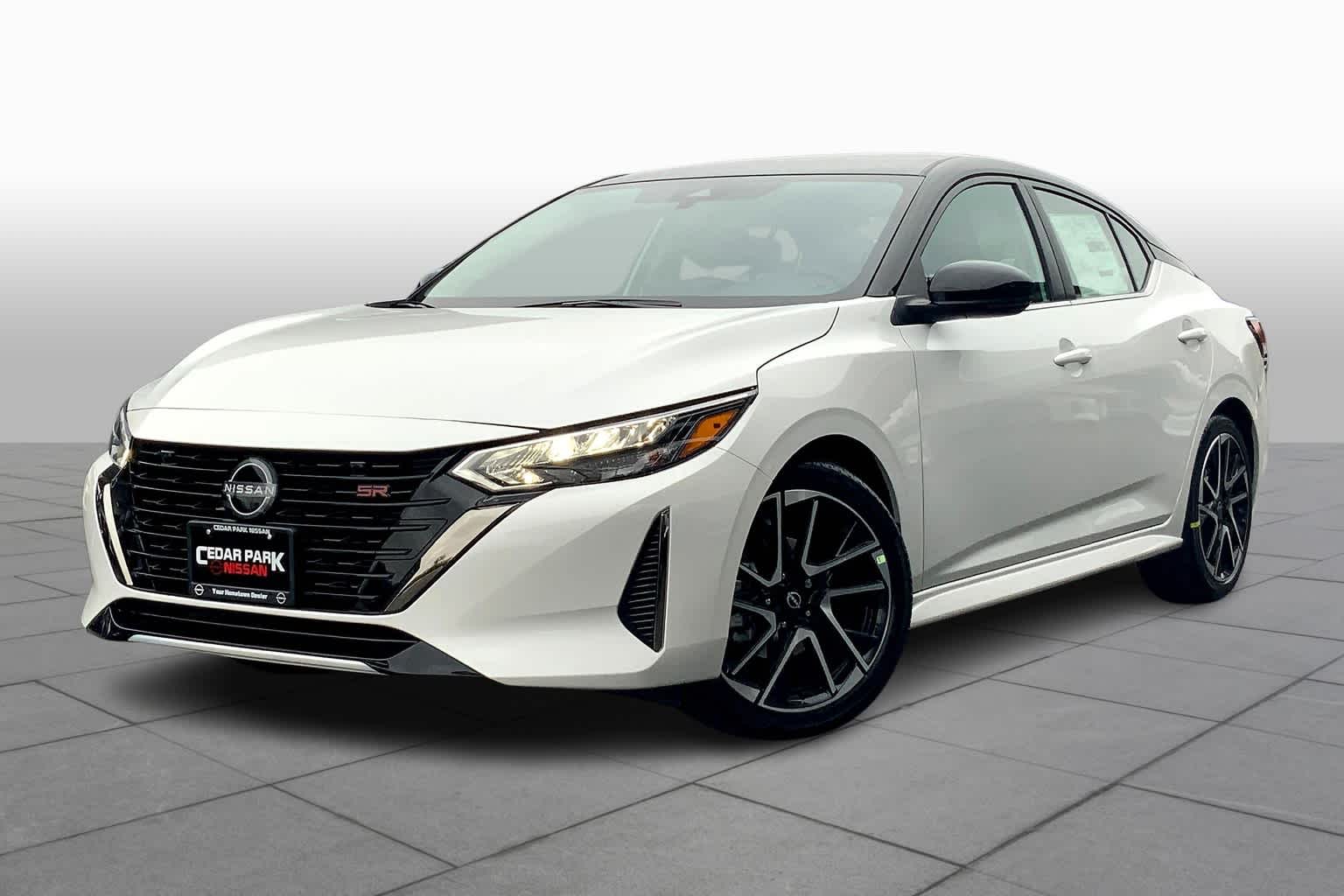Keeping your car in optimal condition isn’t just about ensuring great performance—it’s about peace of mind, safety, and avoiding hefty repair costs in the long run.
Think of regular maintenance as giving your Nissan a rejuvenating spa treatment. It refreshes your vehicle and ensures it continues to run efficiently for years to come.
Whether you’re driving your Nissan every day for work or enjoying it on weekend getaways, consistent care significantly extends the lifespan of any vehicle, including Nissans.
Nissan vehicles are known for their distinctive combination of design, engineering, and technology, offering a driving experience that truly stands out.
To get the most out of your Nissan, understanding the specific maintenance needs of the brand is essential.
Proactive measures like inspecting components, replacing fluids, and adhering to routine service schedules keep your car running smoothly and help you steer clear of unexpected repair bills.
This comprehensive guide highlights the top maintenance tips every Nissan owner should know.
From straightforward checks to professional recommendations, these insights are designed to keep your Nissan performing at its peak.
Regular Oil Changes
One of the simplest yet most critical maintenance tasks for keeping your Nissan’s engine in good health is sticking to regular oil changes.
Oil serves as the lifeblood of your engine, reducing friction, regulating temperature, and ensuring smooth performance while improving fuel efficiency.

For most Nissan models, it’s recommended to change the oil every 5,000 to 7,500 miles, but always consult your owner’s manual for exact guidelines. Skipping oil changes can lead to sludge buildup, increased engine wear, and potentially costly repairs.
By maintaining fresh oil in your engine, you enhance its efficiency, prolong its lifespan, and ensure optimal performance for your ride.
Maintain Proper Tire Pressure and Alignment
Maintaining the correct tire pressure is not just about comfort—it also influences fuel efficiency, vehicle handling, and safety.
Nissan recommends checking your tire pressure monthly and ensuring it aligns with the specifications outlined in your owner’s manual.
In addition to monitoring pressure, rotating your tires every 5,000 to 7,500 miles prevents uneven wear and ensures safer driving conditions.
Don’t overlook alignment, as misaligned tires can cause your car to drift to one side, affecting stability, handling, and tire longevity.
Proper tire pressure, regular rotations, and alignment maintenance contribute to a smoother ride and extend your tires’ lifespan.
Replace the Air Filter as Needed
The air filter is a small yet essential component of your Nissan’s engine system. It prevents debris and dust from entering the engine, allowing only clean air to reach it.
This not only boosts fuel efficiency but also ensures smooth engine operation.For most Nissan models, replacing the air filter every 15,000 to 30,000 miles is advisable.
However, driving in dusty conditions may necessitate more frequent replacements. Signs that your air filter needs attention include reduced fuel efficiency, a sluggish engine, or a visibly dirty filter.
A clean air filter improves engine performance, enhances mileage, and reduces unnecessary strain on your engine.

Check and Maintain Battery Health
A dependable battery is essential for ensuring your Nissan starts without trouble. Watch for signs of a weakening battery, such as slow engine starts, dim lights, or a dashboard battery warning light.
Regularly inspect the battery terminals for corrosion and clean them if necessary to maintain a steady power flow. Using a multimeter to test the voltage is a simple way to assess battery health.
On average, Nissan batteries last about three to five years. Replacing your battery within this timeframe minimizes the risk of unexpected breakdowns, keeping your Nissan powered and ready to go.
Keep Your Coolant System in Check
Coolant plays a critical role in maintaining your Nissan’s engine temperature, especially during extreme weather conditions.
Nissan generally advises checking coolant levels every few months and replacing the coolant every 60,000 miles or as specified in your owner’s manual.
To inspect coolant levels, ensure the engine is cool and check the reservoir tank. Signs of potential coolant issues include overheating, low levels, or visible leaks beneath the vehicle.
Proper coolant system maintenance helps prevent engine overheating and ensures a worry-free driving experience.
Inspect and Replace Brake Pads Regularly
Brake pads are vital for your Nissan’s stopping power, but they wear down over time, which can compromise safety and performance.
Inspect your brake pads every 10,000 to 15,000 miles or if you notice squealing noises, increased stopping distances, or a brake warning light on the dashboard.

Depending on driving habits and conditions, replacing brake pads is typically recommended every 30,000 to 70,000 miles.
Regular brake maintenance ensures reliable stopping power and enhances vehicle safety, giving you peace of mind on every journey.
Pay Attention to the Transmission
Your Nissan’s transmission is crucial for smooth shifting and optimal performance. Regularly checking and replacing the transmission fluid is key to extending its lifespan.
Nissan typically recommends changing transmission fluid every 30,000 to 60,000 miles, depending on the model and driving conditions.
Be vigilant for signs of trouble, such as unusual noises, gear slippage, or delays in shifting, as these may indicate transmission issues.
Routine transmission maintenance helps you avoid costly repairs and ensures your Nissan continues to deliver a comfortable, reliable driving experience.
Monitor Belts and Hoses
Belts and hoses are essential for powering vital components like the alternator, water pump, and air conditioning in your Nissan. Inspect these parts every 30,000 miles or as advised in your owner’s manual.
Look for wear indicators such as cracks, fraying, or soft spots in hoses, and replace them promptly to avoid unexpected breakdowns.
Regular maintenance of belts and hoses prevents overheating, power loss, and other engine problems, keeping your Nissan running efficiently.

Regularly Check Lights and Electronics
Maintaining your Nissan’s lights and electronics is crucial for safety and visibility on the road.
Inspect your headlights, taillights, and indicators regularly to ensure they’re functioning correctly. A quick check every few months helps identify dimming or failed lights early.
Addressing electrical issues promptly prevents further complications and ensures your Nissan remains reliable in all driving conditions.
Keep a Maintenance Schedule
Adhering to a consistent maintenance schedule is one of the best ways to keep your Nissan performing at its peak.
Document every service appointment, including oil changes, tire rotations, and inspections, and follow the maintenance intervals outlined in your Nissan’s manual.
Certified Nissan technicians have specialized training to care for your car’s unique engineering, ensuring it receives the best possible care.
Following a well-maintained schedule boosts your vehicle’s longevity and performance while preserving its resale value. A dependable, well-maintained Nissan ensures years of enjoyable driving.
Consistent, preventive maintenance is the foundation for keeping your Nissan in excellent condition. By following these essential tips—such as regular oil changes, monitoring tire pressure, and staying on top of electronics—you’re investing in your car’s reliability and long-term performance.
Each step contributes to enhancing your Nissan’s efficiency, protecting you from unexpected repairs, and ensuring your vehicle is always ready for the road ahead.
Take a proactive approach to care by creating a maintenance plan tailored to your Nissan model. A little effort now guarantees a dependable, enjoyable ride for many years to come.

